Stormont budget means 'people at risk of harm', Robin Swann says
- Published
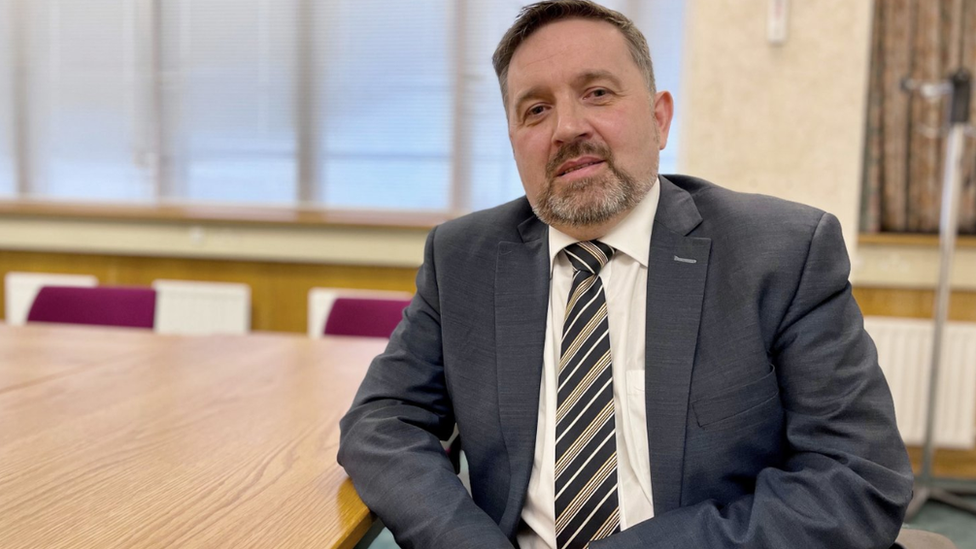
Health Minister Robin Swann, from the Ulster Unionist Party, voted against the budget
Northern Ireland Health Minister Robin Swann has said the Stormont budget means "people will be at increased risk of harm".
Mr Swann and the Ulster Unionist Party (UUP), which he represents, voted against the budget.
The health department got £7.76bn - the largest share of day-to-day funding.
Mr Swann said a "health service that is actually ravaged by millions of pounds worth of cuts is bad for people's health".
He added that it would restrict "us in the use of new drugs, and therapies".
"We are hearing this morning about possible cancer treatments," Mr Swann told BBC Radio Ulster's Good Morning Ulster.
"Our Department of Health may not have the money to actually implement those in Northern Ireland along with others.
"Waiting list initiatives that we talked about that were a priority for the Executive, no monies for those.
"In fact, I am also having to look at money that was allocated in a Westminster settlement for waiting list initiatives to use for red flag emergencies."
Mr Swann said on Thursday that the health department had been "left in a position where we were actually receiving a 2.3% cut on what we receive and on what we spent last year".
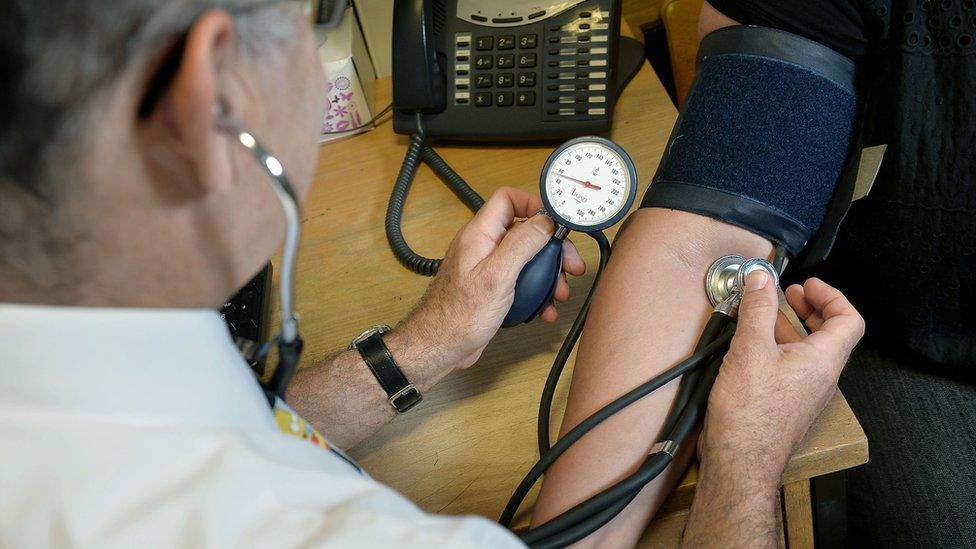
Mr Swann has warned GP services will be affected by the budget announcement
Other parties in the Northern Ireland Executive agreed a spending plan for the financial year, with about £14.5bn for day-to-day spending and about £1.8bn for capital spending.
The largest allocation, after health, goes to the Department of Education - £2.87bn.
The Department of Justice has been allocated £1.26bn.
Mr Swann has warned that hospital waiting lists, pay settlements, GP services and domiciliary care packages will all be affected by the budget announcement.
'Incredibly serious consequences'
In a letter to Stormont's health committee, seen by BBC News NI, he said it was his duty to inform members of the "incredibly serious consequences" of the budget.
Mr Swann said the only additional targeted investment would be the £34m provided as part of the UK government package for the restoration of devolution.
He said approximately £75-80m was needed to ensure people with cancer or time-critical conditions could be treated as required.
The letter stated that while Mr Swann had previously asked for an additional £1billion to maintain services he was prepared to reduce this by £200m to bring the figure down to £800m.
Speaking on the Nolan Show, Mr Swann stressed that the executive "should have been prioritising waiting lists" when agreeing a budget and that there needed to be "collective responsibility" in terms of reallocating money.
He reiterated that he nor his party could support the budget "in its current form".
"I am calling on the assembly to strategically review this budget, they should be looking into what can be amended and changed," he added.
Pressed on where the additional money health required could be drawn from, Mr Swann insisted that he didn't want to "get into a bidding war with other departments".
In the previous budget, which was imposed by Northern Ireland Secretary Chris Heaton-Harris, health received baseline spending of just over £7.3bn.
BBC News NI understands the Department of Health has received an additional £500m.
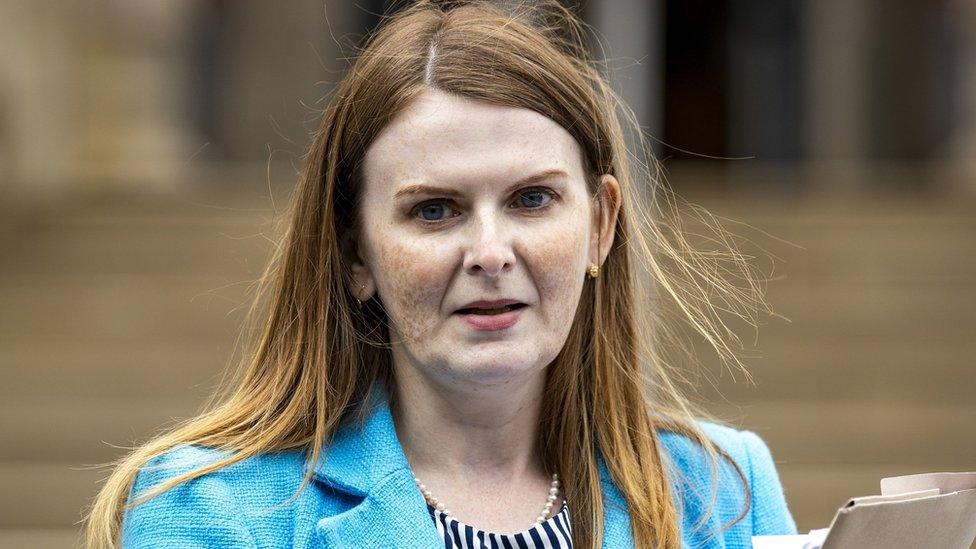
Finance Minister Caoimhe Archibald is going to lobby the Treasury on how Northern Ireland is funded in the future
While the health minister had previously asked for an extra £1bn, he had most recently proposed that he could try and work with £800m instead.
The department's allocation is therefore £300m short.
Finance Minister Caoimhe Archibald, of Sinn Féin, said it was regrettable no department got all the funding for which they bid.
She renewed her call to the UK government to review the overall public spending settlement for Northern Ireland.
Her department said the total available funding for departments rose by 6.3% from last year's opening position to £13.5bn to £14.4bn this year.
Ms Archibald said the Department of Health's allocation included £34m to tackle waiting lists.
Related topics
- Published25 April 2024
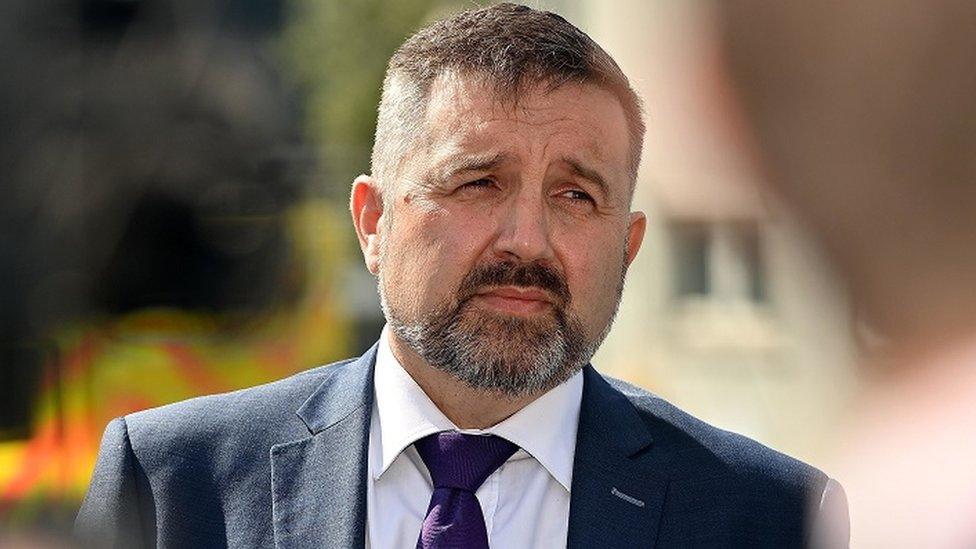
- Published15 January 2024
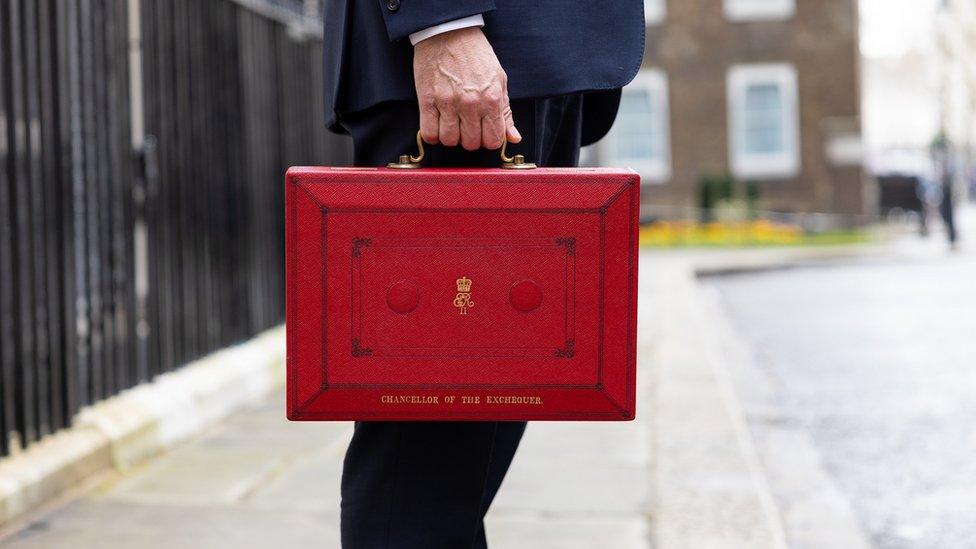
- Published26 February 2024
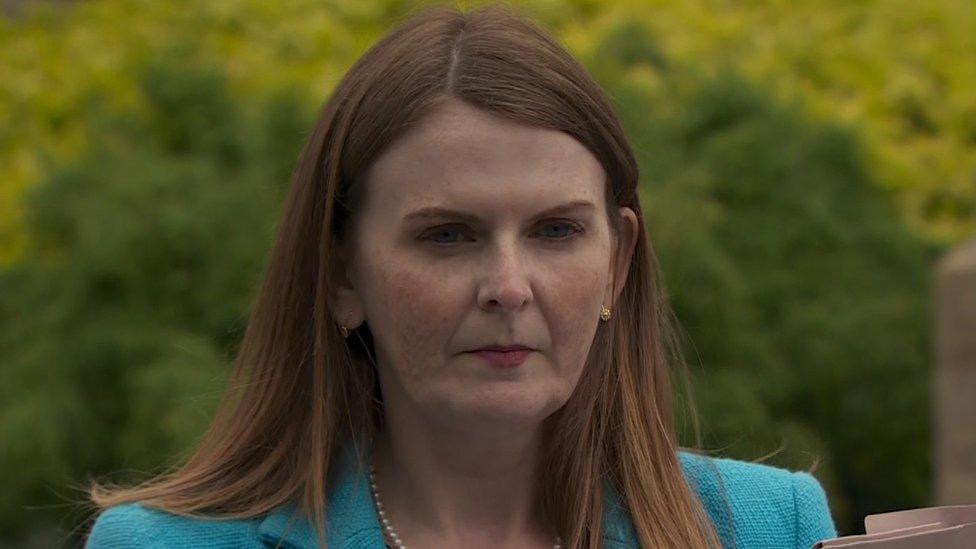
- Published2 March 2024
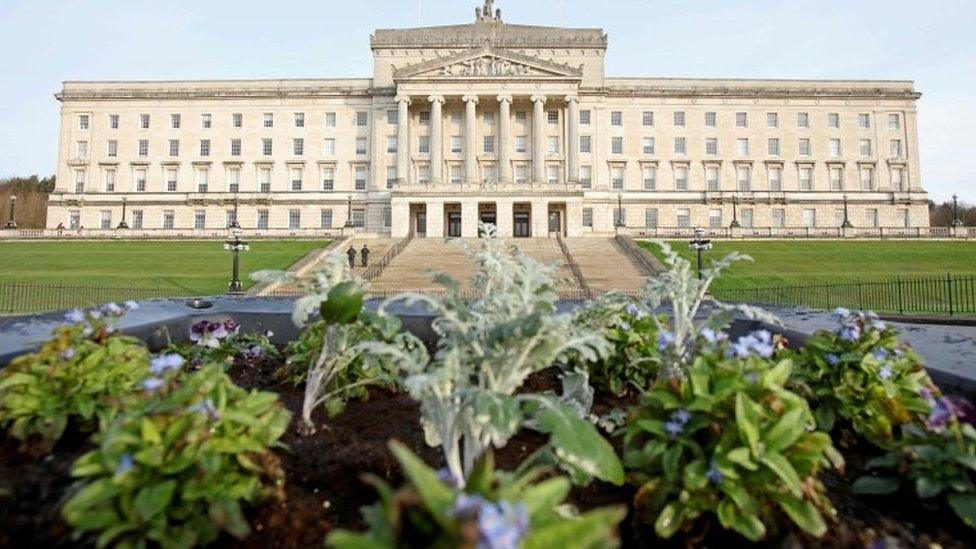
- Published13 February 2024
